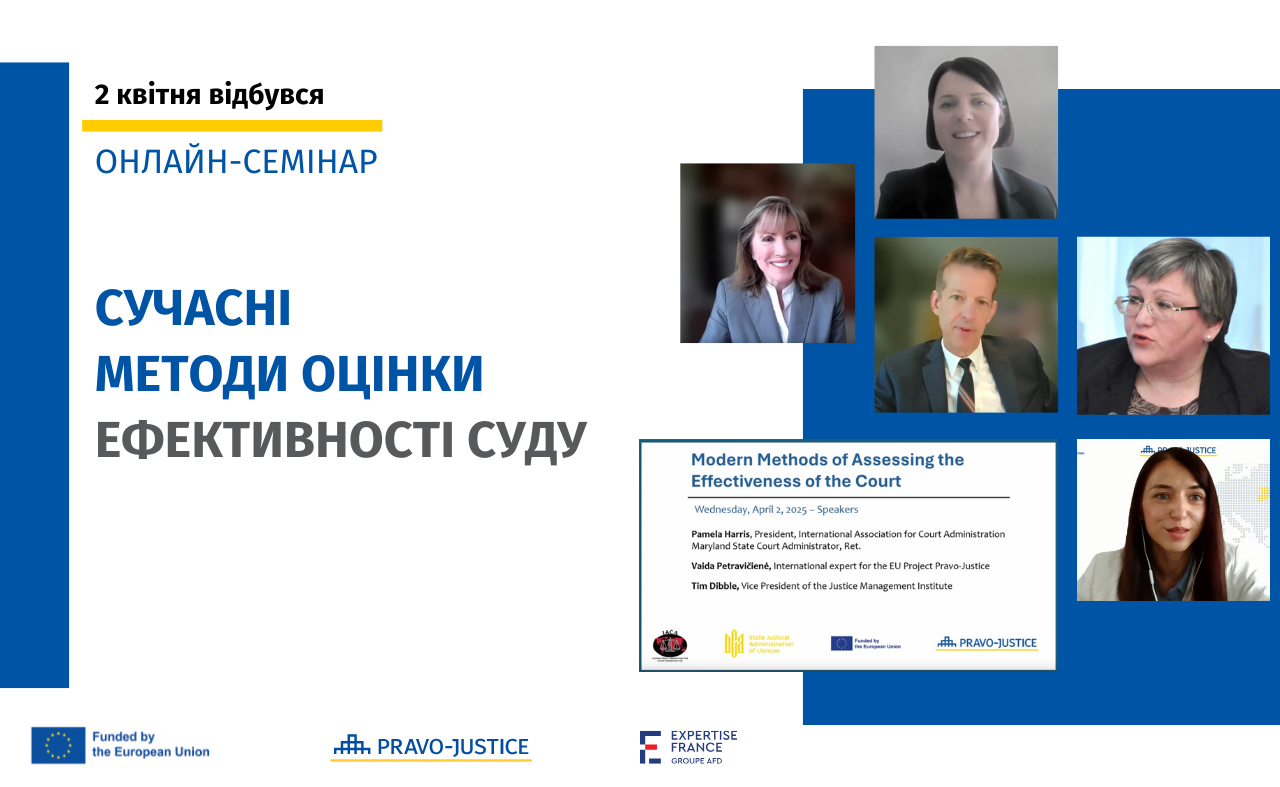EU Project Pravo-Justice Supported the Seminar "Modern Methods of Court Performance Assessment"

On April 2, an online seminar on the topic “Modern Methods of Court Performance Assessment” took place. The event was organised by the International Association of Court Administration (IACA) together with the State Judicial Administration of Ukraine and EU Project Pravo-Justice.
In the framework of the seminar, the participants got familiar with the following topics:
- assessment of case processing time and quality;
- best practices for optimising case processing;
- role of digital tools and software in case management;
- data analysis for better case management.
The event was moderated by Pamela Harris, President of IACA. She emphasised the important role of digital tools that helped ensure effective court operation, including in the context of the staff-related crisis, as well as other challenges provoked by the war.
“One of the biggest problems in the courts is the lack of staff. It entails a number of other challenges, therefore, in order to ensure citizens’ access to justice, we need to optimise by implementing digital tools,” stated Pamela Harris.
During the seminar, Olha Bulka, Acting Deputy Head of the State Judicial Administration of Ukraine, highlighted the methods of court performance evaluation that applied in Ukraine.
“Court performance evaluation aims at improving and streamlining its operation, as well as increasing the effectiveness and efficiency of court procedures. We have always been open to cooperation with our international partners in this area, because their experience in implementing modern software, including for optimising case processing, is very valuable to us,” noted Olha Bulka.
For her part, Oksana Tsymbrivska, Team Leader of EU Project Pravo-Justice, drew attention to the fact that in war conditions, Ukrainian courts were even more in need of modern tools, which, in particular, would help maintaining public trust land ensuring high-quality, timely, accessible, and transparent justice.
“The Project has been assisting the State Judicial Administration with this for many years. We have been working together on the implementation of modern approaches to court management, increasing institutional capacity, developing and scaling the Model Courts Initiative, as well as supporting digital transformations,” added Oksana Tsymbrivska.
According to her, a judicial system cannot be efficient in the 21st century without widespread implementation of digital tools.
“It is digital solutions that make it possible to collect, process and analyse big data. This is the basis for informed management decisions, effective resource allocation, workload monitoring, ensuring openness, and improving the quality of justice,” summarised Oksana Tsymbrivska.